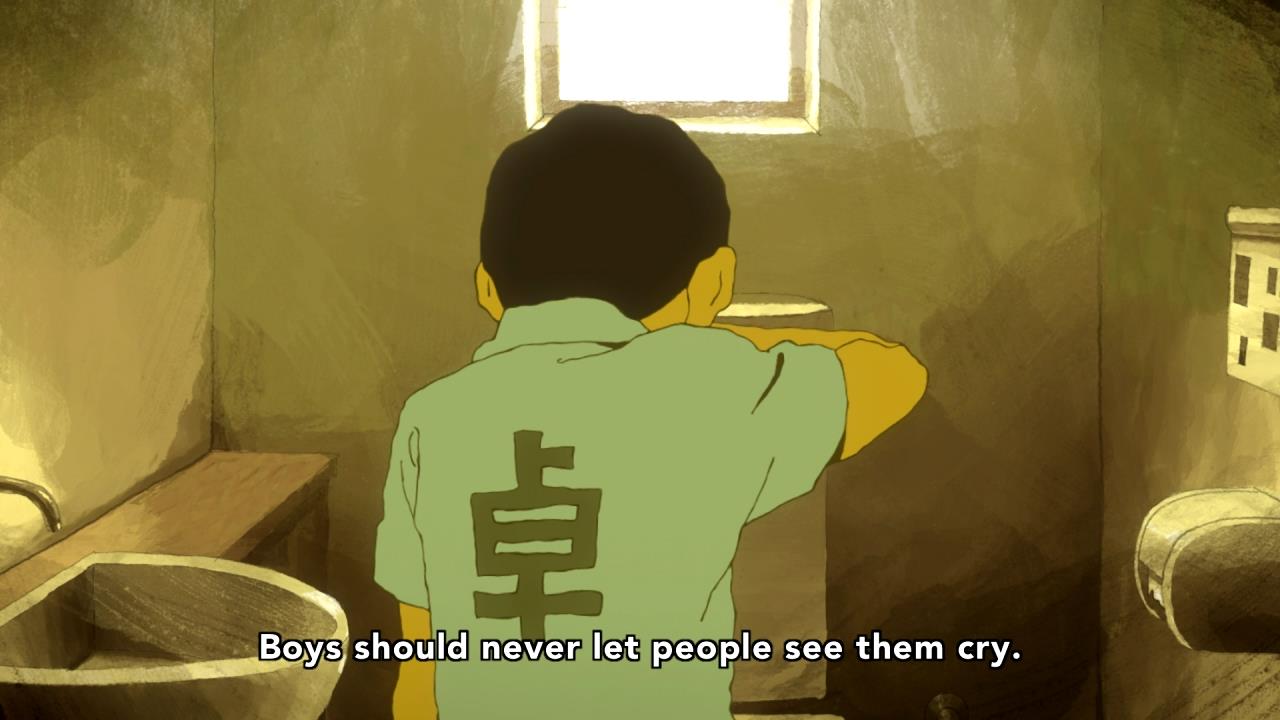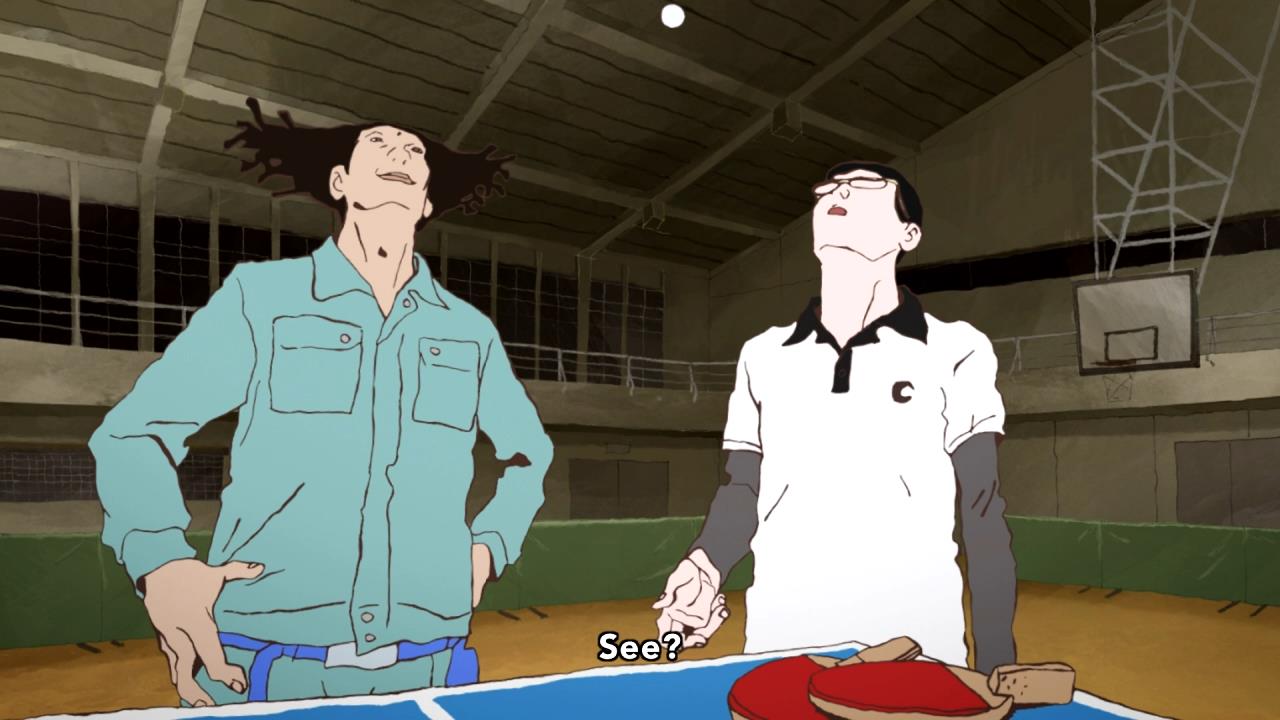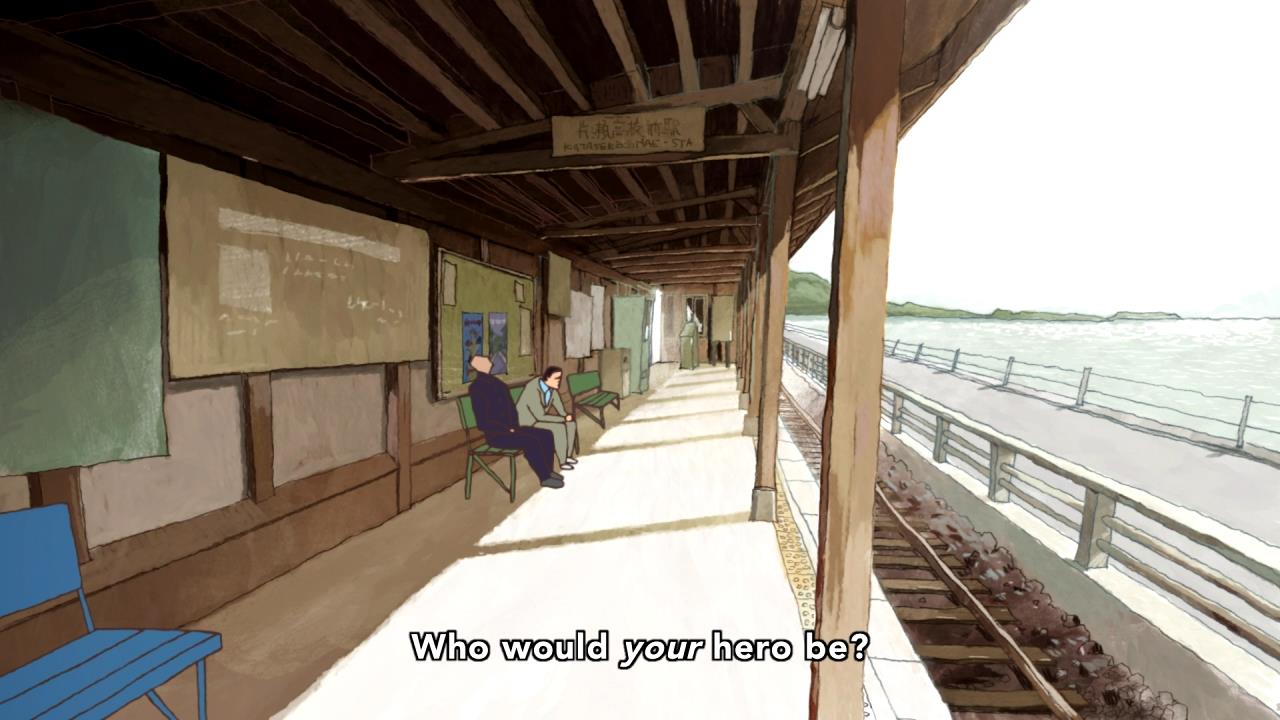It’s a testament to how much Ping Pong respects its characters that the person who would occupy the “villain” role in a traditional narrative is here simply the most tragic member of a selection of co-protagonists. Kazama is an unhappy boy, and this episode was largely dedicated to defining and exploring that unhappiness.

At the beginning of the episode, Kazama warns Smile that “your talent will whither and die if you stay in this dump.” Again and again, he raises the specter of wasted potential, and of how much better Smile could do in the arena of ping pong if he changed schools. But Ping Pong isn’t really about “winning” – and Kazama demonstrates this as much as anyone.
What is talent worth in the abstract? Kazama seems to see talent as its own reward, or almost as a responsibility – as if he is a slave to his talent. As the episode slowly reveals, this total fixation on success in ping pong has a very understandable, human cause – he believes it will bring him and his family respect within an extended family that doesn’t really value him in any other way. Though he’s internalized it as a source of strength, ultimately ping pong is actually a method of running away for Kazama – he does not wish to engage with the messier realities of the world, and so he positions himself in a world that evaluates people in a simple straight line of success versus failure. He most likely lives in terror of the kind of failure that forced Wenge and Peco to reevaluate their own priorities. He can only trust in his own strength – when he is asked who his hero would be, he responds “there are no heroes.”
Smile knows differently, though he does find his robotic identity comforting. For the last few episodes, Smile has been retreating in much the same way as Kazama – unable to both push for his own goals and remain mindful of the feelings of others, he’s traded total empathy for total athletic focus. But it seems like this episode’s offer from Kazama actually makes him realize something – that he truly is not like Kazama, and never could be. He declines Kazama’s offer, and when his coach apologizes for the meeting, he sulkily admits that he does have feelings, and empathizes with others. Like Kazama, Smile has an unhappy home life, and cannot look to his family for heroes like Wenge can. But as he runs away from the coach he seems to feel doesn’t understand him, he ends up accidentally running into Peco, who’s collapsed from the pressure of his own training regimen. Smile has never had an easy hero to look up to, so he’s had to manufacture his own – and for a very long time, he managed to live in Peco’s shadow by artificially building him up. But here, even after Smile crushed his initial ego, we see Peco still fighting, still clearly determined to be the best. It turns out Smile can pursue his own strength and take solace in the strength of his friends, after all.
Smile and his coach end up reconciling shortly after, and their following conversation sheds some narrative light on the pressures Kazama is still suffering under. But the one scene of this episode that really got to me was right near the end, when Smile’s team captain reveals the new balls Smile requested a week ago. It was basically Wenge’s redemption song all over again, but in the end, this stuff is what I watch this show for. Seeing Smile share an honest moment of camaraderie, letting someone he’d distanced understand the genuine enthusiasm he feels for this sport he’s pursuing. When you’re forced to be your own hero, you really can’t let yourself be anything less, and Kazama demonstrating the pain of that loneliness only made this moment of earnest vulnerability all the more beautiful. This show’s gifts are something special.



I saw Smile’s running away as the exact opposite of running away, actually; it was a gesture to himself, in which he runs – doing the thing his coach wants him to – on his own, instead of by being driven by him. It’s him telling coach that he’s taken up coach’s ambitions as his own, and is his protege not just because coach makes him.
Yet, at the same time, I’ve read other impressions of this that see Smile as in it for approval. In this show, characters’ gestures are clearly polysemic, contradictory even, and different viewers seem to have starkly different opinions on what drives characters, revealing a degree of vagueness, or undefinability to Smile’s character.
Isn’t this a higher form of character writing, that appears to follow the rule of making characters defined personalities, but then not really, but sorta really, but not really? It seems to me that it is definitely more realistic than ‘simply-defined characterization’, where you can always pin down what a character is like?
I think how you interpret Smile’s run here really just depends on whether you pin his turn at the meeting with Kazama itself, his conversation with his coach, or when he sees Peco. And since the show is so insistent on not calling attention to its own character twists, any point in the middle stretch of this episode could conceivably be the point where Smile comes to accept and act on the value of scenes like the last one I talk about here. Or it could just be the cumulative effect of these moments. Which is very natural! I wouldn’t necessarily call it a “higher form” of character writing, but it’s certainly a strong effect.
Pingback: Spring 2014 – Week 8 in Review | Wrong Every Time